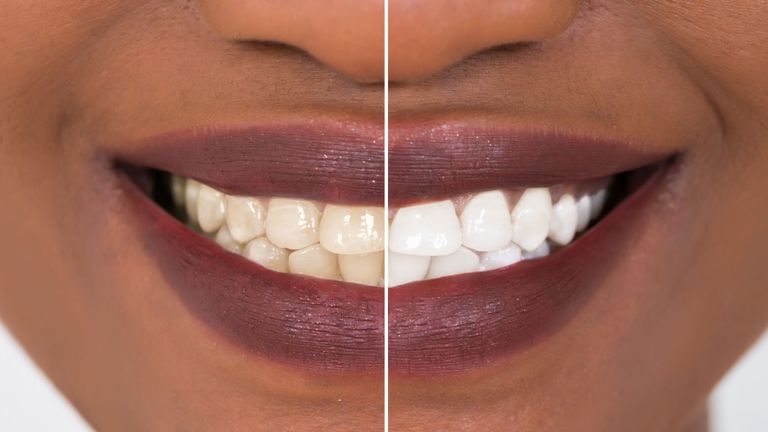Tooth whitening (tooth bleaching) is a treatment option for discoloured teeth. It is the use of chemicals (peroxides) to lighten tooth colour. It is useful in mild to moderate discolouration including aging-related discolourations. It should not be done on hypersensitive or decayed teeth, teeth with faulty fillings, heavily filled teeth, teeth with opaque white spots and teeth on which orthodontic brackets will be bonded. Tooth whitening techniques are vital or non-vital depending on whether the nerves in the tooth are alive or dead. Tooth bleaching can be done at the dental clinic or at home with bleaching kits.
WHAT TO EXPECT
The visits may be single or multiple depending on the required results.
The dentist will introduce himself and explain the procedure. He will take your history and examine your teeth for oral hygiene, fillings and health status. The cause of the tooth discolouration has to be discovered. He will use a shade guide to record your tooth colour shade and will take a photograph of your teeth before the treatment begins. The teeth will be scaled and polished to remove stains, debris or dirt. The teeth are isolated from the rest of the mouth to prevent the bleaching agent from leaking to the soft tissues in the mouth. You will be asked to wear protective glasses and an apron. He may also use some petroleum jelly to protect your lips. You will be given a follow-up appointment
POST-PROCEDURE CHECKLIST
- Adhere to any post-procedure instructions you are given
- Avoid acidic fruit juices during the bleaching period and two weeks after to prevent tooth sensitivity
- Stay away from coloured drinks during the bleaching period including red wine
- Avoid heavily coloured foods like kola nuts, coffee, palm oil. Avoid tobacco products
- Use a white toothpaste instead of a coloured one
- Maintain oral good hygiene
- Book your next appointment before you leave the clinic
- See the dentist every six months even if you have no complaints
FAQ
Bleaching may cause tooth hypersensitivity and gum irritations. The hypersensitivity lasts for a short while. The roots of the teeth may also resorb in some cases.
The discolouration can recur especially if you continue to take foods that can discolour the tooth.


